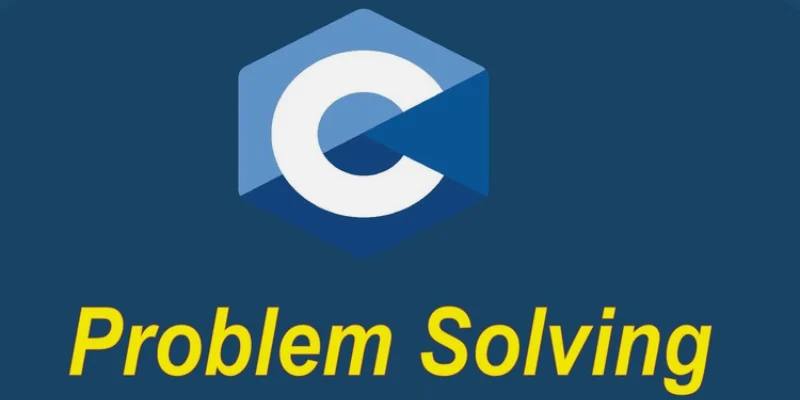
Understanding the Basics of C Programming
Before solving problems in C programming, one needs to know the syntax and characteristics of the language. C programming is a procedural, structured language that employs functions and variables to solve problems. Learning the C programming fundamentals is the initial step towards solving problems efficiently.
A clear grasp of concepts such as loops, conditional statements, arrays, pointers, and data structures will enable you to think critically and dissect problems into manageable parts. If you are a beginner in C, taking a C++ Online Course can assist you in understanding the basics quicker.
Key Steps to Solve Problems in C Programming
Problem-solving in C programming can be broken down into several key steps. Follow this structured approach to tackle any coding challenge :
1) Break Down the Problem: Understand the problem fully before jumping into code. Identify the inputs, outputs, and operations that need to be performed. Breaking a problem into smaller parts makes it easier to solve.
2) Plan and Write Pseudocode: Write pseudocode to plan the logic before writing actual code. This helps you visualize the problem and plan your solution systematically, while also emphasizing the importance of memory management in C programming.
3) Write the Code: With the code using proper syntax and structure. Ensure that each part of your solution aligns with the pseudocode you’ve written.
4) Debug and Test: Debugging is an essential step in solving problems. Errors and bugs are common in C programming, but knowing how to troubleshoot them effectively will improve your problem-solving abilities. Testing your code ensures that it works as expected.
5) Optimize Your Code: Once the program is functional, consider optimizing it for better performance. Memory management is particularly important in C programming, and using techniques such as pointers, arrays, and efficient loops can significantly enhance performance.
Common C Programming Challenges and Solutions
C programming is not without its challenges. Some of the most common issues developers face include:
1) Memory Management Issues: In C, memory allocation and deallocation must be handled manually. Forgetting to free memory can lead to memory leaks. To avoid this, always ensure that dynamic memory is freed when no longer needed.
2) Pointers and Arrays: Working with pointers can be tricky, especially when passing them to functions or dealing with multi-dimensional arrays. Practice is key to mastering these concepts.
3) Debugging Errors: Syntax errors, runtime errors, and logical errors are common in C programming. Learning how to use debugging tools and understanding common mistakes will help you debug your programs effectively.
How C++ Programming Complements C
While C is a strong programming language in itself, learning C++ will make you a candidate for even greater opportunities. C++ is built upon C and incorporates object-oriented programming concepts like classes, inheritance, and polymorphism. Once you’re familiar with C programming, it’s easy to learn C++ for beginners and improve your programming skills and solve more advanced problems.
An Online C++ course can assist you in learning the advanced features provided by C++, through which you will be able to solve problems differently and creatively. It’s a wonderful follow-up after learning C programming. To enhance your learning experience, enrolling in the Best Training Institute in Chennai can provide you with expert guidance and hands-on training to master both C and C++ programming.
Choosing the Right Training for C and C++
If you’re committed to enhancing your C and C++ programming skills, choosing the correct training program is of utmost importance. A properly formatted course that suits both beginners and seasoned programmers will lay the proper groundwork for learning these languages and understanding the uses of C++. Make sure to choose training institutes that provide experienced trainers and practical learning opportunities so that you gain actual knowledge and experience.
Effective training programs, like those offered at FITA Academy, go beyond teaching theoretical concepts; they immerse you in real-world problem scenarios that help sharpen your programming skills and prepare you to tackle complex challenges in both C and C++ programming.
Mastering problem-solving in C and C++ requires a solid understanding of the fundamentals, along with consistent practice and a strategic approach. By breaking down problems, writing pseudocode, debugging, and optimizing your solutions, you can enhance your coding abilities and tackle even the most complex challenges.
